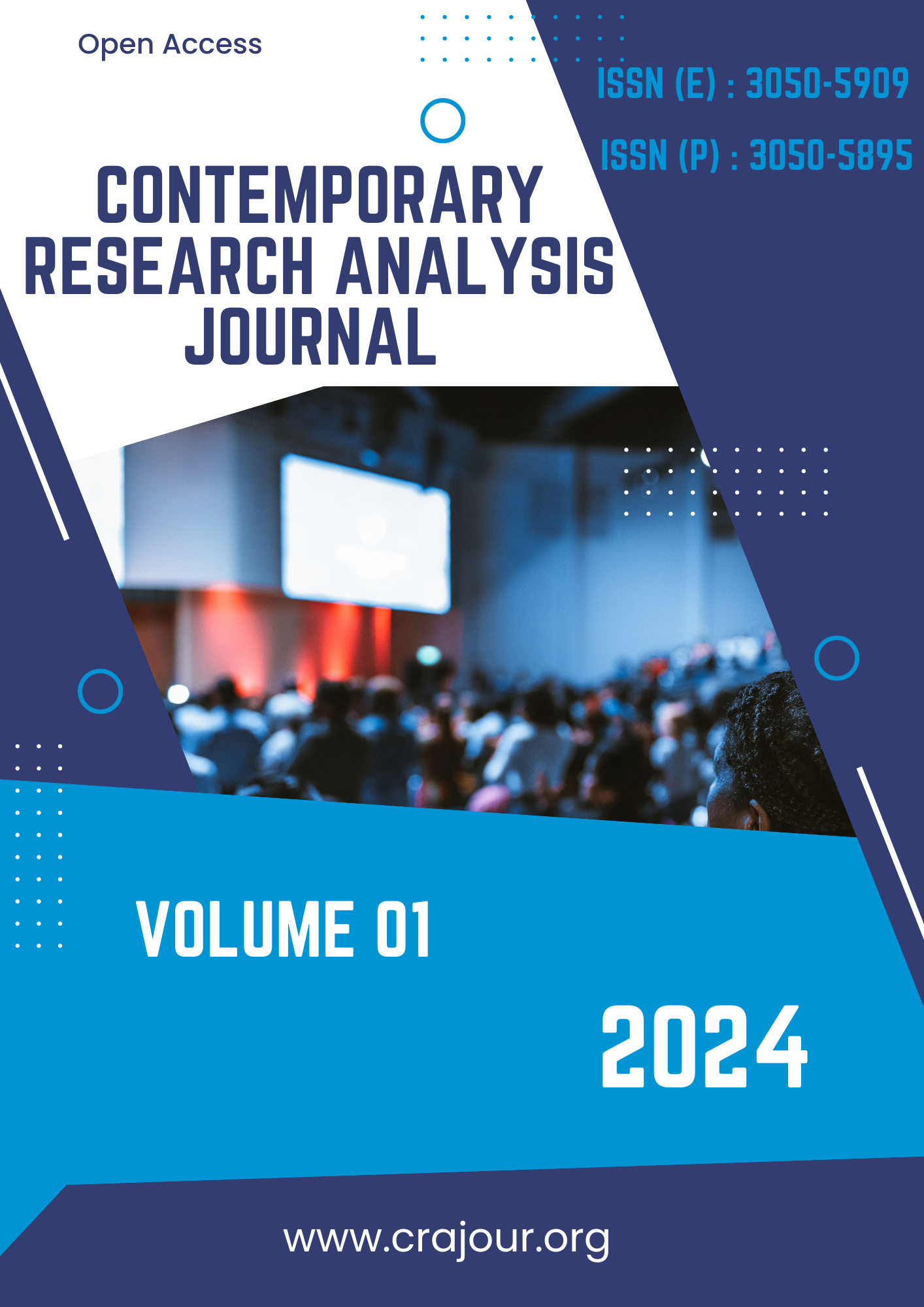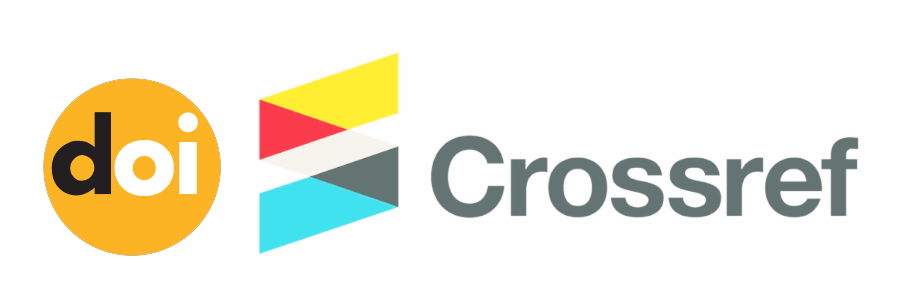Tertiary Agricultural Students’ Proclivity to Use Social Media for Improving Learning Outcomes During the COVID-19 Pandemic Era in Oyo State, Nigeria
DOI:
https://doi.org/10.55677/CRAJ/04-2024-Vol01I3Keywords:
COVID-19 pandemic, Social media, Learning outcomes, Tertiary agricultural students.Abstract
The COVID-19 pandemic caused significant disruptions in the higher education industry, leading to program closures and delays. Institutions were asked to adopt Web 2.0 teaching methods, including Social Media (SM), for engagement and multitasking. Despite this, educational institutions are yet to harness SM’s potential to improve learning outcomes among students. Hence, this study investigated students’ proclivity to use social media for improving learning outcomes during the COVID-19 pandemic era in Oyo State, Nigeria. A multi-stage sampling procedure was used to select a total of 210 respondents. Data were collected quantitatively through questionnaires on respondents' socioeconomic characteristics, knowledge, learning outcomes, and proclivity to use SM. Data were analyzed using frequency count, percentage, mean, Pearson Product Moment Correlation, and linear regression at α0.05. Respondents’ average age was 23.96±3.52 years, majority (61.1%) were female, single (90.9%), and Christians (74.5%). Most (68.8%) students depended on their parents/guardians for their source of income, with an average monthly income of #30,418.27±56322.51. Majority (66.8%) had high knowledge of SM usage and learning outcomes (61.1%). Most (53.4%) indicated a high proclivity to use SM for improving learning. Students’ proclivity to use SM was not significantly correlated with their knowledge of use (r=0.025) while age (β=-0.287) contributed to their proclivity to use SM. Students are more willing to use SM for improved learning outcomes in Oyo State, Nigeria. The government and policymakers should create guidelines and recommendations for educators on how to integrate social media platforms into their teaching methods to improve learning outcomes.
References
Abraham, B.K (2020). Attitude of adolescents towards use of social media. International Journal of Advanced Research, 8(02), 443-453.
Blake P., Piovesan M., Montinari N., Warneken F., Gino F. (2015). Prosocial norms in the classroom: The role of self-regulation in following norms of giving. J. Econ. Behav. Organ. 115, 18–29. 10.1016/j.jebo.2014.10.004
Cathala, X.; Ocho, O.N.; Watts, P.N.; Moorley, C. (2021). International Student Nurses’ Use of Social Media for Learning: A Cross-Sectional Survey. Nurse Educ. Today 2021, 107, 105160.
Chen, M.; Xiao, X. (2022). The Effect of Social Media on the Development of Students’Affective Variables. Front. Psychol., 13, 1010766.
Deslauriers, L., Schelew, E., Wieman, C. (2019). Improved learning in a large-enrollment physics class. Science, 332(6031), 862-864. doi: 10.1126/science.1201783.
Dumulescu, D., & Mutiu, A. I. (2021). Academic leadership in the time of COVID-19: Experiences and perspectives. Frontiers in Psychology, 12. https://doi.org/10.3389/fpsyg.2021.648344
Harris, N., & Bacon, C. E. W. (2019). Developing cognitive skills through active learning: A systematic review of health care professions. Athletic Training Educational Journal, 14(2), 135–148.
Hruska, J., & Maresova, P. (2020). Use of Social Media Platforms among Adults in the United States—Behavior on Social Media. Societies, 10(1), 27. https://doi.org/10.3390/soc10010027
Jabeen, F.; Tandon, A.; Azad, N.; Islam, A.K.M.N.; Pereira, V. (2023). The Dark Side of Social Media Platforms: A Situation-Organism-Behaviour-Consequence Approach. Technol. Forecast. Soc. Chang. 2023, 186, 122104.
Kemp, S. (2022). “Digital 2022: Nigeria – DataReportal – Global Digital Insights”. https//datareportal.com/reports/digital-2022-nigeria. Accessed on March 4, 2022.
Küsel, J., Martin, F., & Markic, S. (2020). University Students’ Readiness for Using Digital Media and Online Learning—Comparison between Germany and the USA. Education Sciences, 10(11), 313. https://doi.org/10.3390/educsci10110313
Makki, A. and Bali, A.O. (2021). The Use of Social Media as a Platform in Education: Ramifications of COVID-19 in Iraq. Academic Journal of Interdisciplinary Studies, Vol 10 No 3. DOI: https://doi.org/10.36941/ajis-2021-0093
Manca, S., & Ranieri, M. (2016). Is Facebook still a suitable technology-enhanced learning environment? An updated critical review of the literature from 2012 to 2015. Journal of Computer Assisted Learning, 32(6), 503-528. https://doi.org/10.1111/jcal.12154
Mangden, J. S and Diyoshak, R. D, (2023). "Effects of Social Media on Students’ Academic Performance in Nigerian Universities: A Case Study of University of Jos". Library Philosophy and Practice (e-journal). 7651. https://digitalcommons.unl.edu/libphilprac/7651
Masood A., Luqman A., Feng Y., Ali A. (2020). Adverse consequences of excessive social networking site use on academic performance: Explaining underlying mechanism from stress perspective. Comput. Hum. Behav. 2020;113:106476. doi: 10.1016/j.chb.2020.106476.
Merkt, M., Weigand, S., Heier, A., and Schwan, S. (2011). Learning with videos vs. learning with print: The role of interactive features. Learning and Instruction, 21, pp. 687-704.
Mustaffa, N., Ismail, Z., Tasir, Nihra, and Said, H. (2016). “The Impacts of Implementing Problem-Based Learning (PBL) in Mathematics: A Review of Literature.” International Journal of Academic Research in Business and Social Sciences, Vol. 6, No. 12, Pages. 490–503.
National Population Commission (NPC), (2022). Official Population Report of South West Nigeria.
Nenge, Katrine (2019-01-08). "Which is the largest city in Africa: Lagos vs. Ibadan city". Legit.ng - Nigeria news. Retrieved 2021-03-07.
Olusegun, (2021).’’ Lists of all Federal, State and Private Polytechnics in Nigeria 2021’’.
https://www.myschoolgist.com/ng/list-of-accredited-polytechnics-in-nigeria/
Papademetriou, C., Anastasiadou, S., Konteos, G., and Papalexandris, S. (2022). COVID-19 Pandemic: The Impact of the Social Media Technology on Higher Education. Educ. Sci. 2022, 12, 261.https://doi.org/10.3390/educsci12040261
Popoola, M. (2014). New media usage for communication and self-concept among journalism and mass communication students in Oyo State, Nigeria. New Media and Mass Communication, 26(2014), 22-34.
Purcell, W.M., and Lumbreras, J. (2021). Higher education and the COVID-19 pandemic: navigating disruption using the sustainable development goals. Discover Sustainability; 2(1):6. DOI: 10.1007/s43621-021-00013-2. PMID: 35425919; PMCID: PMC7885764 .
Rasheed, M. I., Malik, J., Pitafi, A. H., Iqbal, J., Anser, M. K., & Abbas, M. (2020). Usage of social media and student engagement and creativity: the role of knowledge sharing behavior and cyberbullying. Computers & Education, 104002. doi:10.1016/j.compedu.2020.104002
Seltzer, R. (2020, September 9). Who leads colleges after COVID-19? Inside Higher Ed. Retrieved from:
https://www.insidehighered.com/news/2020/09/09/what-college
Sobaih, A. E., Palla, I. A., & Baquee, A. (2022). Social Media Use in E-Learning amid COVID 19 Pandemic: Indian Students’ Perspective. International Journal of Environmental Research and Public Health, 19(9).
https://doi.org/10.3390/ijerph19095380
Tankovska, H. (2021). ‘’Number of global social media network users 2017-2025 statista’’.
https://www.statista.com/statistics/278414/number-of-worldwide-social-network-users/
Ukegbu P, Nwofia B, Ndudiri U, Uwakwe N, Uwaegbute (2019). A. Food Insecurity and Associated Factors Among University Students. Food and Nutrition Bulletin;40(2):271- 281. doi:10.1177/0379572119826464
Www.ui.edu.ng. "History of UI | University of Ibadan". Retrieved 2021-06-03
Xie, X., Siau, K., and Nah F.F. (2020). COVID-19 pandemic—Online education in the new normal and the next normal. J. Inf. Technol. Case Appl. Res. 2020;22:175–187. doi: 10.1080/15228053.2020.1824884.
Published
Issue
Section
License
Copyright (c) 2024 Contemporary Research Analysis Journal

This work is licensed under a Creative Commons Attribution 4.0 International License.



